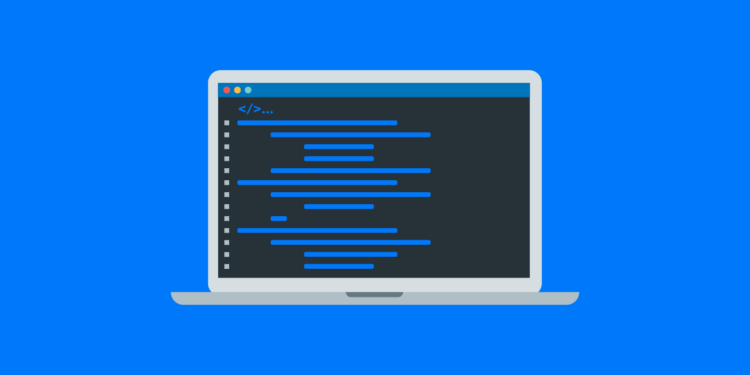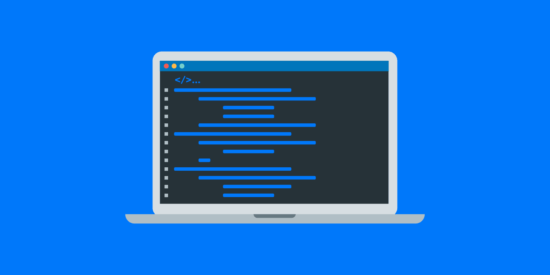There was a time when computer science was a fairly discrete field. Coding was a skill used almost exclusively for programming jobs, and foreign to those of use without a computer science degree. In our digital age, however, things have changed. “Programming for lawyers” doesn’t sound as outrageous as it once may have used to.
While the long-running debate on whether lawyers should learn to code and whether it should be taught in law schools continues, it’s becoming increasingly clear that having at least some knowledge of coding is useful for attorneys. While you don’t need to become a full-on programmer to be an effective attorney, having some coding skills might give you a competitive advantage.
What’s more, many lawyers are more suited to it than they realize.
In this article, we’ll explore programming for lawyers, why it might be useful to your work and your practice, and how you can get started. To help build our knowledge base, we interviewed David Colarusso for his insights on the subject at the 2019 Clio Cloud Conference. As a lawyer and experienced programmer—who is also the director of the Legal Innovation and Technology Lab at Suffolk University Law School in Boston—David is able to explain the intricacies, benefits, and challenges of computer programming for lawyers.
Should lawyers learn to code?
In short, yes—learning the fundamentals of coding is a good idea for lawyers. That is, if you have the bandwidth for it.
In an increasingly data- and tech-driven legal industry, embracing innovation and programming is key to building a more efficient practice.
“Digital technology has changed law in the same ways that other technologies have, which is to say that it’s made certain things easier and it’s made the ability to scale your work easier in some respects,” David explained.
By developing a basic understanding of programming, you’re more likely to be able to use legal technology to a fuller extent.

However, learning to code as a lawyer doesn’t mean dropping out of your practice to devote yourself full-time to building custom programming products. It shouldn’t be an all-or-nothing focus (i.e. being either a complete coding Luddite or an advanced lawyer computer programmer). Most lawyers should approach programming with the goal of becoming “coding literate”—becoming fluent in the language of coding, to the extent that best serves them.
To David, learning to code can help lawyers to better understand the realm of the possible when it comes to tools that can help their practice. By knowing what you can do with the tools you have and knowing what kind of tools are available to you, you can be a better member of interdisciplinary teams. And, if you’re hiring actual coders to customize programs for your firm, you’ll have the language to be able to ask for (and get) what you want.
As David said, “that means being able to speak both the languages of tech and of law, and know what the realm of the possible is on the tech side, and what the constraints are on the legal side, so that you can go in and you can say, ‘Well, I need something that does this and I know that you should be able to do that because I’ve seen these three other things. I don’t know exactly how to do it, but I know it’s possible and I know it’s not magical thinking.’”
The power of learning coding as a lawyer is really in the understanding. To this end, David offers this insight: “There’s a quote we use that sort of organizes a lot of what we do by the physicist Richard Feynman, who said something to the effect of ‘that which I cannot create, I don’t understand,’ right? So the idea is that by having students build some tools, that they then gain an understanding of that world, so that they then can work with it.”
How much coding should lawyers learn?
Keep in mind that the concept of “coding” is vast. Most lawyers don’t need to (or have the capacity to) become bonafide computer programming experts. However, they can level up on the tech competency continuum in a way that helps their situation.
David explained that how much coding a lawyer learns really depends—the optimal level will vary from person to person. There’s a spectrum, and different lawyers will do better at different points.
“When you say code, what do you mean?,” he said. “Do you mean someone writing production code that’s in Python, or something that people would recognize universally as a programming language? Or do you mean something less than that, right? Are you making zaps on Zapier? Is that coding? I tend to take more of an approach that it’s a continuum. And then on one end there are things like just using spreadsheets better.”
In his book The Client-Centered Law Firm, Clio CEO and Co-founder Jack Newton offers a similar perspective. Coding is great, but there’s a sweet spot for most lawyers, as there might be limited return on investment if you’re building certain systems yourself from scratch. While, as David explained, there’s value in learning programming to understand them, if you aren’t an expert coder, sometimes it makes sense to buy a program. Then, you can use Zapier or the program’s API to customize further if you really need or want to.
Does learning to code make you a better lawyer?
Some argue yes (coding skills demystify computer programs, so you can better use technology to streamline legal workflows), some argue no (lawyer’s limited professional development time should be devoted to legal-specific skills)—but the answer is more likely somewhere in the middle. Learning to code will be more or less valuable depending on the type of law you practice and what your clients need.
Learning code is also a great way to flex your problem-solving muscle in another environment.
Why lawyers make great programmers
These roles might seem, at first glance, quite different. But the core of being a lawyer is actually quite similar to the core of being a programmer. If you have the skills and mindset to be a great lawyer, you’re likely already equipped with the tools you’ll need to learn programming. Here’s why:
1. Lawyers are problem-solvers—so are coders
A lot of being a lawyer revolves around processing information, using data to make predictions and informed decisions, and problem solving—whether it’s interpreting laws, writing briefs, or conducting legal research to assist your clients. If you look at coding from a wide angle, it’s also about processing information, looking for issues, and problem solving.
“Anytime you’re using some type of conditional logic or reasoning, then that’s coding,” David asserts. “… when you’re telling a computer to do something, that’s programming. And so learning that skill is a skill that all attorneys, I think, need to use.”
2. Lawyers use language and logic—so do coders
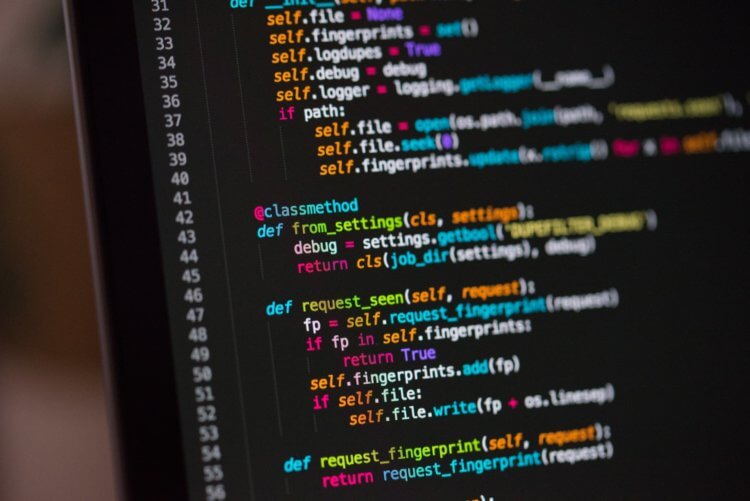
At its heart, the law centers on language, just like computer programs. Similarly, in law school, attorneys learn how to think like a lawyer and use logical thinking—and that way of thinking, as David said, is similar to coding.
“There’s a reason why we call it the legal code, right? Logical thinking and multi-part tests and balancing tests are all things that are very similar to processes that you might implement when you’re programming,” he said. “… all the skills that you’ve spent honing over your years of practice are exactly the skills you need to do this.”
Lawyers use types of math, science, and logical thinking skills in their practice—they just might not realize that they’re using the same skills as coders.
“Attorneys deal with that in their practice in other ways all the time,” David said. “They just call it something different. So that logical thinking really is the thing that allows them to jump right in.”
Take the example of David, who became a lawyer after a career as a high school physics teacher. When he first became a lawyer, his background in science and technology was apparent in how he was drawn to looking at case files and data from a different perspective.
For David, that science background helps influence how he practices law and frames questions. “I think it helps frame it by allowing me to ask different questions about how we deal with data and how we use that data for the benefit of our clients,” he said.
You may like these posts
What you should learn when learning to code as a lawyer
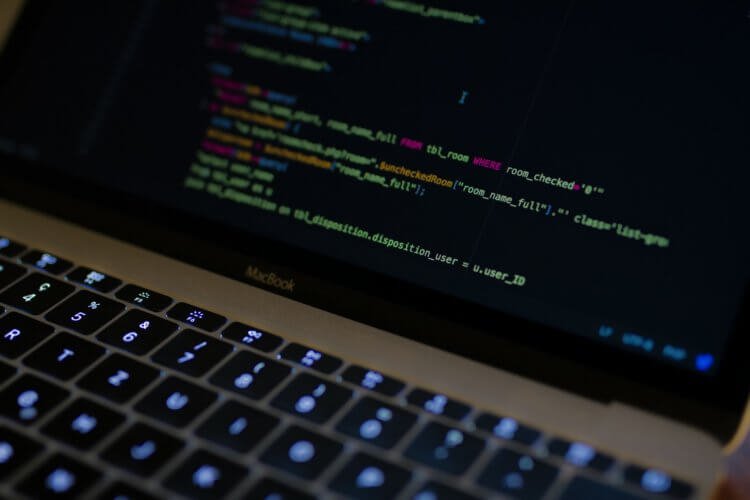
So where do you start? Your best bet is to seek out computer programming skills that focus on a legal context. Computer science skills that could be particularly valuable to lawyers include:
- Coding languages to help you mine data, like Python or SQL
- Algorithms for problem solving
- Privacy and cybersecurity
- Cloud computing to better understand the cloud and how it can help your practice
- Scalability to allow solutions to handle different loads of work
- Database design for information organization
Examples of lawyer computer programming in practice
Beyond just understanding programming better, computer programming can practically help your practice be more efficient, effective, and innovative.
Automating manual tasks
By automating manual tasks—whether by using legal technology software like Clio, computer programming, or a combination of both—you can streamline workflows, save time, and make your practice more efficient. Clio Grow’s legal workflow and email automation, for example, lets you build custom email templates so your firm can quickly and easily send automated-yet-personalized communications to your clients. With Clio Manage, you can streamline practice-management tasks, like setting up automated payment plans to reduce time and manual effort spent on billing.
Understanding data
Gaining a better understanding of the data you’re working with is essential for your practice’s success—whether that means using Clio’s Law Firm Insights Dashboard to look at your firm’s own data, or looking at legal data in a different way in a case.
When David became a public defender, for example, he encountered a case that called on his background in data to assist. “Basically, there was a chemist in the drug lab where the states sent their things to be tested, and she was tampering with evidence,” David explained.
There were numerous old case files for the public defender’s office to sift through, and no clear, effective way to deal with them. “So basically that sort of became a big wake-up call for our understanding of data and how we use data at the public defenders,” David said, “So I remember myself and all my colleagues, we went back and we pulled all the old case files and we just read through them to see if this chemist had been mentioned. And that led me to say, ‘Well we know all these things, but we don’t really know them, that we know them in that they’re in case files somewhere, but we can’t access them. They’re not actionable.’”
So, David and his team decided to look at the data differently. He said, “So let’s start doing something different with our data, and so I asked a bunch of questions, which I think were informed by my background.”
Making data work for your firm
David also shared a story about how a former student of his used basic programming skills to make it easier for his firm to deal with data. David had recently taught the student how to take multiple spreadsheets and bring them together into a big table based on common columns.
Later, when David’s student was at his legal internship, “… They got some discovery in at the firm he was working at, and the discovery was in the form of spreadsheets and they were like, ‘Oh, we’re going to have to hire a consultant and blah, blah, blah.’ And he’s like, ‘Well, why don’t we just put those things together and we can poke around ourselves and look at stuff?,’ and they thought he was magic, right? And of course they offered him a job, and he got an even better job than that one later. But the bar is so low or the field is so open that just being able to do simple things is really empowering,” David said.
Tools to help lawyers learn to code
If you’re looking to dabble in coding as a lawyer, there are tools that can help make the process easier and more effective. Here are two smart options:
Community Lawyer

David suggests Community Lawyer, a platform for document automation, data management, and client portals that lets you quickly build custom client intakes and document automations.
The platform, which integrates with Clio, “… is actually built on a programming language that’s open source, that you can then go and you can actually—if you want to do more— you can go in and dig in there,” David said. “That software is called docassemble, and docassemble itself is built on the Python programming language. And so then you can dig even deeper, right. You know, pull back the layers of the onion and learn Python.”
Zapier
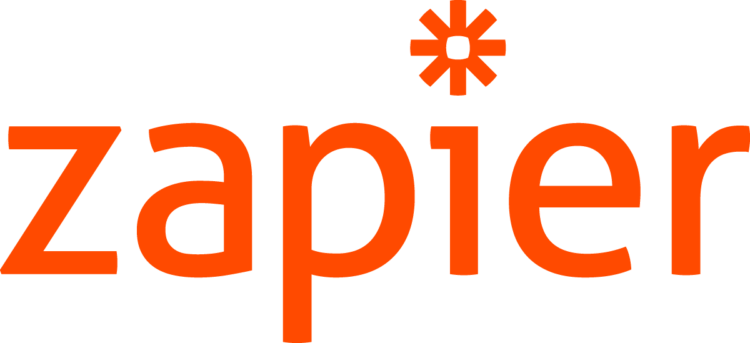
Zapier makes it simple to create custom integrations and workflows. And—because no coding knowledge is required to use it—it’s a smart choice for beginners that want to start customizing workflows at their firm. Zapier’s Clio Integration connects Clio with more than 1,000 web tools. For example, it lets you effortlessly manage Clio tasks in Trello or add new Clio contacts to a MailChimp list.
Courses in computer science for lawyers
Computer science courses that are designed specifically for lawyers can help funnel the broad range of programming skills into those that are most directly relevant to practicing law. Choose a route that accommodates your interest, time, and availability. Here are a few ideas:
Look for online computer science courses. Whether you want basic computer science courses for beginners or courses specifically tailored to lawyers, you’ll find options online, including:
- Coding the Law (the class David is teaching this fall). Learn how to think about technologies in the law by building your own. In this project-based course, open to non-programmers and coders alike, the class explores the technical, legal, and ethical dimensions behind the use of computer algorithms by legal practitioners and the justice system. Projects range from the creation of simple document review and automation tools to the construction of expert systems and narrow AIs.
- EdX’s CS50 for Lawyers course. A variant of Harvard University’s introduction to computer science, CS50, this free online class was made for lawyers and law students. The course emphasizes high-level concepts, aiming to help students better understand the legal implications of their clients’ technological decisions.
- Codeacademy. Codeacademy offers a variety of free and monthly-subscription courses to learn all aspects of computer science, including programming languages like Python.
- Coursera’s Computer Science: Programming with a Purpose course. Offered by Princeton University, this online course introduces basic programming elements and basic skills for computational problem solving. The features of the course are all available for free.
Take a course at your local university. Check out your local college or university to see if they offer a coding for lawyers course. Some of these courses might also be offered online, as well.
Enroll in a coding bootcamp. If you’re really, really serious about getting into coding and you want to learn it as fast as possible—and you have a few weeks free—a two-week coding bootcamp is a way to immerse yourself in the process.
Try QnA Markup. David’s QnA Markup is a fast, easy, and free option. QnA Markup is a simple, open-source computer language created specifically for lawyers with little (or even no) programming experience. It transforms text into interactive question-and-answer sessions that can be used as stand-alone expert systems or for rule-based document construction. The best part? You can learn it in about an hour.
Conclusion and additional resources
Even if you don’t want to become a full-on lawyer computer programmer, coding and computer science are areas worth exploring so that you can better embrace innovation and position yourself within the fast-evolving legal industry. And, remember: you don’t have to be an expert to reap benefits. Learning the basics of computer programming while taking advantage of tools and technology can be enough to give you a step up in the field.
As David suggests, think of technology as a tool. “… if you think of it in that respect,” he said,” the way it’s changed the practice of law is, it’s changed what you can do and the resources you need to do things. One of the things that attorneys always forget or maybe don’t identify is that attorneys are information workers. So the information economy that we’re living in now and the information technology that underpins it are the tools of our trade.”
If you want to start by building your legal technology knowledge base, these webinars on the topics of understanding legal tech competence, how to embrace technology for long-term success at your firm, and how to use automation to increase efficiency at your firm are good starting points.
We published this blog post in August 2020. Last updated: .
Categorized in: Technology

